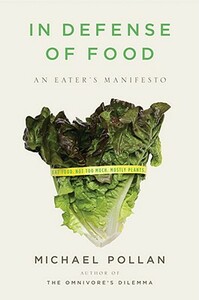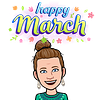Take a photo of a barcode or cover
This is a very eye-opening book about the food industry and nutrition studies. Apparently, we're making eating way too complicated. It's not about organic food, but whole food vs. processed food. (Did you know that all processed food has at least one ingredient that's a derivative of corn or soy in it?) I'm definitely going to have to re-evaluate what I feed my family.
Took me a longer chunk of time than anticipated but this was a valuable read! Fascinating to delve into the history of “nutritionism” and really grapple with where we’re at with our whacky view of food in America.
Practical application chapters were included at the end not with a ton of new ideas but they landed differently after the “history” chapters.
I definitely recommend this to anyone interested in making changes to their mindset about food.
Practical application chapters were included at the end not with a ton of new ideas but they landed differently after the “history” chapters.
I definitely recommend this to anyone interested in making changes to their mindset about food.
Everyone should read this book! It is amazing how corrupted our food, eating habits, and information about healthful eating have become.
I liked this book for the simple reason that it, like "When Elephants Weep" before it, really got me thinking about what I eat and now, what my family eats (back when I read "When Elephants Weep" I just had to worry about me). It's ironic though that the Weston Price Foundation (Pollan quotes Price's studies quite a bit) gave this book a 'thumbs down' review on their website. The reasoning behind it and a lot of the science Pollan write about confuse me, but the bottom line I came away with is that I eat way too much processed food. I've been inspired to feed myself and my family more whole, natural foods.
This book seemed to put forth a lot of common sense and it lacked a lot of the interesting ecological aspects which were in [b:The Omnivore's Dilemma: A Natural History of Four Meals|3109|The Omnivore's Dilemma A Natural History of Four Meals|Michael Pollan|http://photo.goodreads.com/books/1192945129s/3109.jpg|3287769]. I think that I did not enjoy this book as much as that one because it seems to just echo what my parents told me as a kid. We had gardens and canned our own tomatoes. My parents were always skeptical of things like using margarine instead of better (purely because of taste, or margarine's lack thereof). Thankfully, they never bought low-fat stuff, which tastes terrible, and doesn't effectively fill you up (telling you to stop eating).
It is frightening that ideas like cooking and eating as a family, without watching TV, and cooking dishes which you prepare yourself is somehow novel these days. It also is not surprising that things like this make people far healthier. It was a nice book, but nothing earth shattering for me. It was nice that I finally figured out where all the crazy fad diets were coming from though, and how something like fat or carbohydrates becomes a terrible dietary monster in the public mind..
It is frightening that ideas like cooking and eating as a family, without watching TV, and cooking dishes which you prepare yourself is somehow novel these days. It also is not surprising that things like this make people far healthier. It was a nice book, but nothing earth shattering for me. It was nice that I finally figured out where all the crazy fad diets were coming from though, and how something like fat or carbohydrates becomes a terrible dietary monster in the public mind..
A quick and fascinating read, Michael Pollan uncovers the history of the food industry and America's policies that prioritize quantity over quality. Before you go diving headfirst into the next fad diet read this book first!
challenging
informative
inspiring
reflective
medium-paced
"Eat food. Not too much. Mostly plants." Simple advice, but much harder to actually do. A worthwhile read nonetheless.




